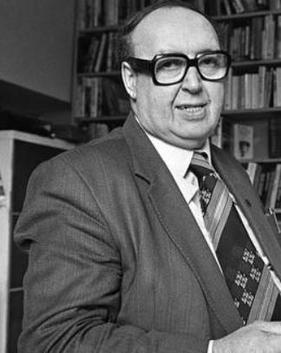Related Research Articles
The Northern Ireland Labour Party (NILP) was a political party in Northern Ireland which operated from 1924 until 1987.

Patrick Joseph "Paddy" Devlin was an Irish socialist, labour and civil rights activist and writer. He was a founding member of the Social Democratic and Labour Party (SDLP), a former Stormont MP, and a member of the 1974 Power Sharing Executive.
John Beattie was a Northern Ireland Labour Party (NILP) politician from Northern Ireland. He was a teacher by profession. In 1925, he became a Member of the Northern Ireland House of Commons for Belfast East. He represented Belfast Pottinger from 1929. At one point he served as leader of the NILP.
The United Labour Party was a minor political party in Northern Ireland.
Belfast is the largest city and capital of Northern Ireland. It is partly located in County Antrim and partly in County Down.
The Commonwealth Labour Party (CWLP) was a minor political party in Northern Ireland. The party was founded in 1942 by Harry Midgley, former leader of the Northern Ireland Labour Party (NILP), in order to pursue his brand of labour unionism.
Henry Cassidy Midgley, PC (NI), known as Harry Midgley was a prominent trade-unionist and politician in Northern Ireland. Born to a working-class Protestant family in Tiger's Bay, north Belfast, he followed his father into the shipyard. After serving on the Western Front in the Great War, he became an official in a textile workers union and a leading light in the Belfast Labour Party (BLP). He represented the party's efforts in the early 1920s to provide a left opposition to the Unionist government of the new Northern Ireland while remaining non-committal on the divisive question of Irish partition.
Francis "Frank" Hanna, was an Irish politician.
Albert Horatio McElroy was a minister of religion and politician in Northern Ireland.
Murtagh Morgan was a trade unionist and Irish republican politician.
The 1952 Belfast South by-election was held following the resignation of Ulster Unionist Party (UUP) Member of Parliament, Hugh Gage.
The Labour and Trade Union Group was an organisation for supporters of the Militant tendency in Northern Ireland.

Margaret McCoubrey (1880–1955) was a Belfast-based Irish suffragist, pacifist, and an activist in the cooperative and labour movements. Standing for the Belfast Labour Party, she was elected to Belfast City Council in 1920..
Jack Macgougan was a trade unionist and socialist activist in Ireland.
Alan Carr is a former trade unionist and politician from Northern Ireland.
The Socialist Party of Northern Ireland, sometimes known as the Northern Ireland Socialist Party, was a small socialist group based in Northern Ireland in the 1930s.
Douglas Bowman McIldoon is a former political activist and civil servant in Northern Ireland.
Robert Martin McBirney QC, known as Martin McBirney, was a magistrate and politician from Northern Ireland who was assassinated.
William John Leeburn was a trade unionist and politician from Northern Ireland.
Joseph Erskine Holmes is a politician in Northern Ireland.
References
- Peter Barberis, John McHugh and Mike Tyldesley, Encyclopedia of British and Irish Political Organizations
- Michael Stenton and Stephen Lees, Who's Who of British MPs: Volume IV, 1945-1979